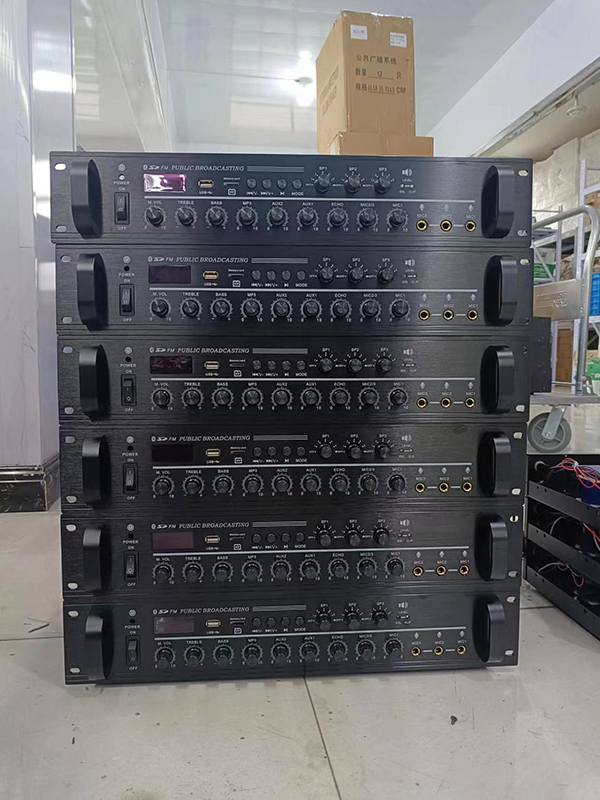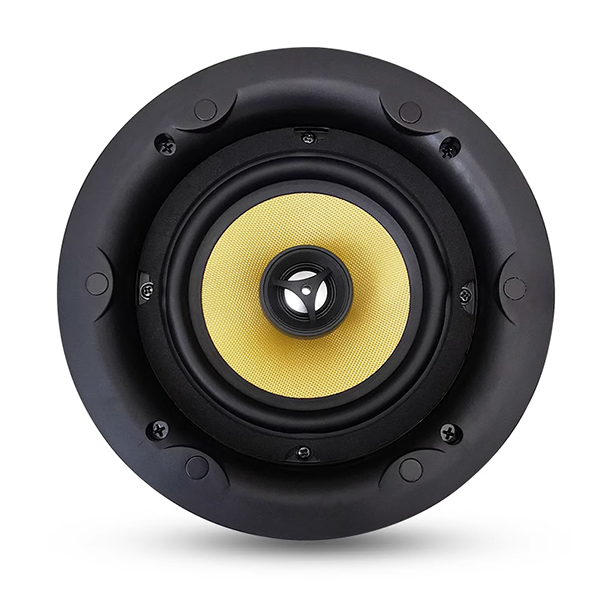
搜索
In manufacturing, communication systems are essential for smooth operations, safety, and coordination across different departments. One key component in these systems is the radio amplifier. Whether used in large industrial parks or small factories, radio amplifiers enhance signal strength, reduce dead zones, and improve overall communication efficiency. This article will explore the practical applications of radio amplifiers in factories, helping you make informed decisions when selecting equipment.
In factories, effective communication between workers, managers, and automated systems is crucial. Radio communication systems, such as walkie-talkies, are widely used in industrial environments, but their performance can be affected by distance, obstacles (like walls, machinery, or metal structures), and interference from other electronic devices. A radio amplifier boosts signal strength, extends the range of communication devices, and ensures clear, uninterrupted communication across large areas or long distances.
For example, in automotive manufacturing plants, assembly line workers, quality control teams, and maintenance crews rely on radios for coordination, safety concerns, and operational updates. A radio amplifier ensures seamless communication between employees, even across different factory sections, improving efficiency and reducing errors caused by poor communication.
Safety is a top priority in factories, and radio communication plays a pivotal role in ensuring a safe working environment. In case of an emergency—such as a fire, equipment malfunction, or health incident—a radio amplifier ensures that communication between emergency responders and factory personnel remains clear, even in areas with weak signal coverage.
In certain factories, such as chemical plants or those handling hazardous materials, ensuring clear communication in emergencies can mean the difference between controlled situations and disasters. A radio amplifier helps ensure that workers can quickly reach out for help and that emergency teams can coordinate efforts effectively, saving time and preventing potential accidents.

When selecting a radio amplifier, one of the most important factors is coverage area. Factories vary greatly in size, layout, and materials, all of which impact radio signal performance. For large factories or multi-story buildings, a high-power amplifier or a distributed amplifier system may be necessary to ensure coverage in all areas.
Choosing an amplifier with adjustable power levels allows you to fine-tune the signal strength to meet the needs of different sections of your facility. Additionally, factories with constantly changing layouts (such as reconfiguring machinery or adding new production lines) may benefit from modular amplifier systems that can be easily adjusted or expanded.
Radio systems use different frequency ranges, such as UHF, VHF, and others. It is essential to select a radio amplifier that is compatible with the frequencies used in your factory’s communication system.
Many modern factories use a mix of frequencies for different purposes. For example, low-frequency radios may be used for machine-to-machine communication, while higher frequencies may be reserved for mobile radios or emergency communication. Choosing an amplifier with broad frequency range compatibility will provide more flexibility, especially if you plan to upgrade or expand your communication system in the future.

Factories can be demanding environments, with exposure to dust, moisture, extreme temperatures, and mechanical vibrations. Therefore, durability and reliability are crucial when selecting a radio amplifier.
Look for amplifiers designed to withstand harsh conditions, with features such as weatherproof enclosures, industrial-grade components, and robust power supplies. High-quality amplifiers should also be capable of running continuously without overheating, particularly if they are used around the clock in production settings.
Additionally, selecting amplifiers with built-in self-monitoring features allows for early detection of issues, reducing the chances of unplanned downtime and ensuring long-term reliability.
Another critical consideration is ensuring that the radio amplifier integrates seamlessly with your existing communication infrastructure. Many factories already use radio base stations, antennas, repeaters, and two-way radios, and the amplifier needs to be compatible with these components.
A versatile amplifier that supports both analog and digital signals provides greater flexibility. Moreover, choosing an amplifier with centralized control or remote management capabilities enables easy monitoring and troubleshooting, which is particularly useful in large factories with multiple communication zones.
Centralized systems can provide real-time data on signal strength, performance, and system health, allowing for faster detection of problems and minimizing downtime.
While purchasing a radio amplifier represents a significant investment, it’s essential to consider the cost-effectiveness of the solution. A high-quality amplifier may have a higher upfront cost, but the benefits it brings—such as improved communication, enhanced safety, and greater operational efficiency—can make it a worthwhile investment.
Look for amplifiers that are energy-efficient to reduce ongoing operational costs. Also, investing in durable and reliable equipment means fewer replacements and repairs, saving money in the long term. A well-chosen radio amplifier can have a substantial positive impact on factory productivity, reducing downtime caused by communication failures and improving overall operational efficiency.

Radio amplifiers play an essential role in improving communication, safety, and operational performance in factory settings. When selecting the right amplifier, it is vital to consider factors like coverage area, frequency compatibility, durability, system integration, and cost-effectiveness. By thoroughly evaluating these elements, factory managers and owners can ensure that their communication systems are reliable, efficient, and aligned with long-term operational goals. Investing in a quality radio amplifier not only improves factory processes but also contributes to a safer and more productive working environment.
Fast production & global shipping support.
email: vicky@kaishengsound.com
phone/wechat: +86 13685748417
whatsapp: +86 15977261524
关于我们杭州凯声音响设备制造有限公司是一家什么公司?
2025-04-10Practical Guide to Radio Amplifiers for Factories
2025-05-13Best 100V Line Amplifier for School PA System 2025 – Ultimate Buying Guide
2025-05-22Ideal for Background Music & Public Address
2025-06-05Why 83% of Modern Factories Choose Zone-Based Audio (Industrial Efficiency Report 2025)
2025-06-13Powerful and Versatile 6-Zone Integrated Amplifier for Professional Audio Applications
2025-06-21销售:陈桂群:15158869321
技术:朱大庆:13732200872
邮箱:vicky@kaishengsound.com
地址:杭州市余杭区瓶窑镇凤都工业区前程路10号